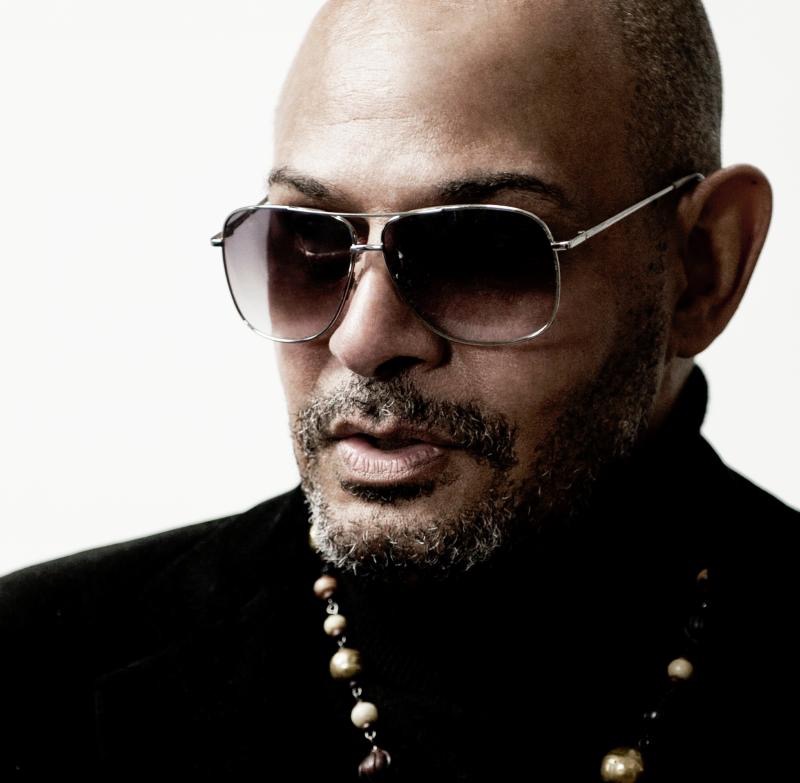Showcasing a diverse selection of both celebrated and lesser-known titles, from Hollywood scores to American independent cinema and European arthouse movies, Soundtrack explores and celebrates the pivotal role music has played in film history, offering an aural and visual journey into the twin realms of sound and sight.
Kicking off with Adamson’s renowned and debut film score, Lost Highway on Fri 5 August – which he will discuss live on stage following the screening with HOME’s Artistic Director of Film, Jason Wood, the season brings together classics, surprises and a handful of rarely shown films that highlight why film composition has become an art-form in its own right.
Jason Wood commented: “I met Barry briefly when we were both on the Sutherland jury for the London Film Festival. His knowledge of cinema was impeccable. We stayed in touch through the intervening years, meeting to talk film and music over a curry. When I decided to take the job at HOME and move to Manchester it was Barry’s advice I sought. Following the release of his latest album, Know Where To Run, it’s a pleasure that he was found time to be collaborate on Soundtrack. I can think of nobody better, and more connected to the city, to talk about film and music.”
Barry Adamson said: “Manchester was the perfect black and white movie set to play out my early life in. It was this big, dark, beautiful city where character, content and back-story came together to influence my very being in the world, all set against a vibrant soundtrack that now sets the tone for the season of scores Jason Wood and myself will be presenting at HOME. After working as a musician and filmmaker and drawing on these influences, it’s a privilege to see myself come full circle to bring this world back to where it all began for me and re-,experience it with the people of the city. Jason Wood is a great man to lean on, both for knowledge and directive support and it’s an absolute pleasure to sit alongside him for this season.”
Adamson has been creating all of his life. The self-taught musician rose to prominence as the bass player in Magazine and toured extensively. His establishment as a solo artist came after a three-year stint with Nick Cave and the Bad Seeds and heralded the release of his seminal first solo album, Moss Side Story. Critically acclaimed, it raised Adamson’s name as a composer of diverse complexity; able to tell a story with music, where the images were those supplanted in the minds of the listeners. Offers quickly followed and saw Adamson work with some of the film industry’s most intriguing mavericks including Derek Jarman, David Lynch, Oliver Stone and Danny Boyle.
Having released nine studio albums, including the 1992 Mercury Music Prize nominated Soul Murder, Adamson has continued to tour globally with his talents being in as much demand by new generations of artists, as he was after his first solo release. He is constantly sought across all art forms for commentary and contribution. His music being both the platform and background for documentaries, TV series, adverts, computer games and even an Olivier Award winning ballet performance by Sylvie Guillem and the Ballet Boyz.
Details
Fri 5 Aug
Lost Highway: Barry Adamson Q & A
Written and directed by David Lynch, Lost Highway stars Bill Pullman as Fred, a man convicted of the murder of his wife, (Patricia Arquette), after which he inexplicably morphs into a young mechanic and begins leading a new life. The soundtrack by Angelo Badalamenti and Barry Adamson twists at every turn and creates an otherworldly quality to the storyline. There are also moments where songs by Bowie (I’m Deranged), Rammstein (Rammstein) and Trent Reznor (The Perfect Drug) enforce and pull the rest of the score together and help shape the direction of the film and assist in taking the audience on a surreal ride. Strap yourselves in.
Following the screening of Lost Highway, which marks the opening of the season, HOME’s Artistic Director of Film, Jason Wood will be in conversation with Barry Adamson.
Sat 6 Aug
Under the Skin
Jonathan Glazer’s haunting sci-fi saga is home to Mica Levi’s extraordinary debut score. She follows Scarlett Johansson’s extraterrestrial movements in an adroit fashion and, scoring in real time, pushes the boundaries of conventional sound signaling (e.g. in her score, synthesizers are used to convey feeling as opposed to the opposite). Ultimately, Levi brings about something (in her own words), which is ‘hot, physical and disturbing’.
Sun 7 August:
Anatomy of a Murder
Director Otto Preminger handpicked Duke Ellington to write the soundtrack to this 1959 courtroom drama. Ellington made the most of the opportunity. With its stamina and incendiary horn blasts, the title brings the lascivious sub-genre of ‘crime jazz’ to full fruition. At the other end of the jazz spectrum, the muted blues of Midnight Indigo has the entire orchestra almost at a whisper, murmuring along while tracks like Sunset Sunday show Ellington’s mastery at coaxing specific voices from the “symphonic din”. Mervyn Cooke, Professor of Music at Nottingham University who himself has written his own and about film composition, noted that Ellington also avoids cultural stereotypes which previously characterised jazz scores and rejects a strict adherence to visuals in ways that presaged the new wave cinema of the sixties.
Wed 10 August
Touch of Evil
Orson Welles stars in and directs this movie. He had it in mind that a conventional score wouldn’t work and so instructed Henry Mancini to score only ‘source’ music, that is, music that plays e.g. from loudspeakers blasting out of bars to invite the tourists in, each bar playing a different Latin number. He thought a mix of rock n roll and Latin and jazz would sit perfectly as a modern day ambience to the Mexican border town setting.
Sat 13 August
Performance
This seventies British crime drama directed by Nicolas Roeg and Donald Cammell is scored by Jack Nitzsche, an American producer/composer who wrote songs that are performed here by an incredible ensemble of musicians including Randy Newman (whose Gone Dead Train features Ry Cooder playing feverish slide guitar), Merry Clayton, The Last Poets, Buffie St Marie and Mick Jagger.
Fri 26 August
Psycho
Alfred Hitchcock’s self-funded Psycho, a double plot story that is a robbery in the first instance and psychological terror in the second, celebrates one of the most iconic themes in history with its ‘slashing violins’ shower scene. Bernard Herrmann decided to use nothing but strings as a foil to Hitchcock’s ambivalence to having any music at all. He ended up concocting nothing less than a masterwork for cello and violin, “black and white” music that resoundingly booms as often as it gnaws at the nerves. Hitchcock was particularly amused by the shower scene and praised Herrmann tremendously, giving him a raise.
Mon 29 August
Cape Fear
Bernard Herrmann wrote the original score for the 1962 J Lee Thompson version of Cape Fear, which Martin Scorsese updated in 1992, hiring the genius composer Elmer Bernstein to meticulously copy Herrmann’s score note for note! He also used parts of Herrmann’s unused score for Torn Curtain. The result is a remarkable and modern take on the heavily Hitchcock-influenced story of psychotic rapist Cady (Robert De Niro) seeking vengeance on Sam Bowen (Nick Nolte) and his family.
Wed 31 August
Shadows
Shadows, directed by John Cassavetes, once in 1958 and again in 1959, is a film that studies interracial relationships around the time of the beat generation. Liela (Liela Goldini), a young light-skinned African American falls for somewhat shallow white musician Tony (Anthony Ray) after they meet at a party. He is surprised when he meets her older brother and realises she is black. Other racial relationship complexities are studied here too as Cassavetes turns them upside down to shock fifties America. The film is now considered a watershed in the birth of American independent cinema. Charles Mingus recorded three hours of music, which is used extensively in the first version then re-written by Shafi Hadi, Mingus’ sax player for the second and bears witness to the term Jazz Cinema.
Tickets, including a range of offers and a pass covering the entire festival, are on sale now via www.homemcr.org/soundtrack or the HOME Box Office on +44 (0)161 200 1500.







